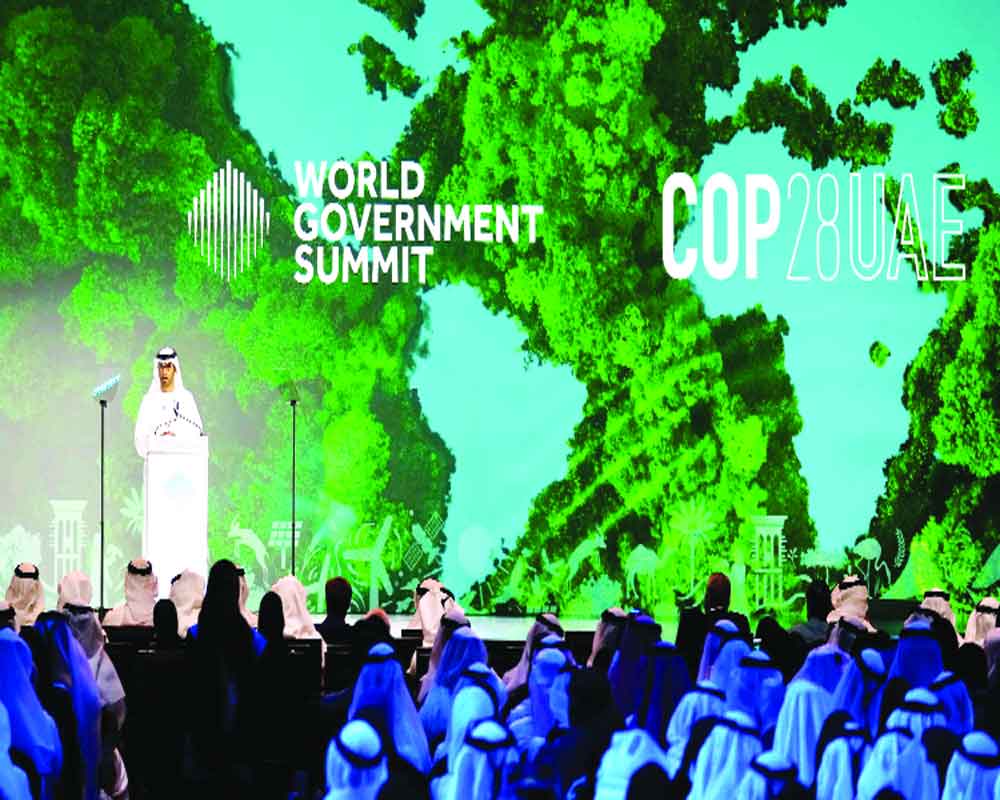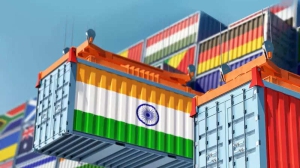The COP28 climate conference in Dubai marks a pivotal moment as world leaders confront urgent climate challenges. Focused on fossil fuels, funding disparities, and deforestation, the conference seeks concrete actions to mitigate the escalating climate crisis and prioritise environmental sustainability
The COP28 climate conference, launched on November 30, is a pivotal event that aims to address critical objectives with far-reaching implications for the global community. These objectives include conducting a comprehensive global stocktake to assess nations’ commitment fulfillment, securing funding for loss and damage, and addressing the contentious issue of phasing out fossil fuels. However, negotiations on the latter have been marred by opposition from oil-producing and developing countries, leading to significant conflicts during the deliberations.
The plenary session of COP28 witnessed the United Nations underscoring the urgency and severity of climate change, highlighting a concerning 1.4-degrees Celsius warming of the Earth. In response to this alarming trend, there is a renewed emphasis not only on phasing out coal but also extending this commitment to oil and gas. Notably, an agreement on the loss and damage deal has been reached, with Japan, the United States, the United Kingdom, and Germany pledging financial contributions of $10 million, $17.5 million, $75.89 million, and $100 million, respectively. However, the adequacy of the US funding commitment, given its status as the wealthiest and second-highest emitter of greenhouse gases, has sparked criticism.
Preceding the COP28 conference, a research publication by NASA and Columbia University scientists has sounded an alarm, indicating that the world is on track to surpass the critical 1.5 degrees Celsius warming threshold above pre-industrial temperatures within this decade. The study provides evidence suggesting that the goals set for 2030 through nationally determined contributions (NDC) are unattainable. This revelation follows a series of extreme weather events globally, from heatwaves in China and Europe to flooding in Libya, rainfall deficits in parts of Asia due to El Nino conditions, and widespread forest fires in Canada, the United States, Europe, and Russia. The year 2023 is projected to be the warmest on record.
Published in the journal “Nature Climate Change,†the report proposes an urgent need for the world to achieve net-zero emissions by 2034 to have a 50 per cent chance of containing warming within 1.5 degrees Celsius. This is significantly earlier than the 2050 pledges made by several Western countries. Despite the consistent inclusion of the objective to limit global warming to 1.5 degrees Celsius in annual conferences, tangible actions to meet this goal have been insufficient.
Developing nations, particularly those in the global south, have borne the brunt of extreme weather events, a consequence of the fossil fuel burning practices of developed nations since the inception of industrialization. While the climate finance agenda was initiated during the 2009 Copenhagen conference to aid adaptation and facilitate the transition to renewable energy for developing nations, there is a noticeable lack of substantial commitment and compliance from developed nations.
A concerning pattern has emerged where major emitters, such as the United States and China, deflect responsibility onto nations with lower emissions, hindering collective progress in combating climate change. The recent criticism faced by India for methane emissions highlights this issue, prompting the Indian Council of Agricultural Research to develop technologies and mitigation processes to minimise such emissions. India is expected to address these allegations assertively during the COP28 summit.
The impact of wildfires in the developed world on global warming is profound, with the Earth’s warming contributing to a surge in wildfire incidents worldwide. Regions such as Siberia, North America, the Eastern and Western Mediterranean, Africa, and the Indian subcontinent have experienced devastating wildfires. The Copernicus Atmosphere Monitoring Service (CAMS) reports alarming statistics about Canadian wildfires, which emitted over 1 gigatonne of CO2 equivalent in the current year, equivalent to the emissions from 285 coal-fired power plants. Global wildfires in 2021 contributed a staggering 6.45 gigatonnes of CO2 equivalent, constituting approximately 20 per cent of the total greenhouse gas emissions from all human activities on Earth.
This revelation underscores the urgent need for comprehensive measures to address and mitigate the escalating impact of wildfires on climate change. It is disconcerting that 20 per cent of greenhouse gas emissions originate from wildfires in developed countries. Rather than hindering the developmental aspirations of nations with minimal emissions, developed countries must take responsibility and address the impact of wildfires on global warming.
The ongoing COP28 in Dubai provides an opportunity for concrete discussions and actions to ensure equitable global cooperation in addressing climate change and its associated challenges. The G20 countries, in their recent Delhi declaration, acknowledged the substantial $5.9 trillion required to fulfill the financial commitments necessary for achieving the Nationally Determined Contributions (NDC) targets of developing nations by 2030. This financial support is crucial for enabling these nations to effectively tackle climate challenges and transition toward sustainable development.
However, developed countries are falling short of the commitments articulated in their NDC under the 2015 Paris climate accord. The failure to provide financial support and technology to aid developing nations in climate-resilient adaptation and the transition to renewable energy is evident. The loss and damage funds agreed upon during the Sharm El Sheikh COP 27 to mitigate impacts in impoverished nations have languished unutilised for a year until certain countries pledged funding during COP28.
The ongoing Global Stocktake (GST) in COP28 is exerting moral pressure on countries that are lagging in achieving their NDC goals. There is a notable resurgence in the combustion of coal, oil, and natural gas for energy, both in developed and developing nations. This surge has been particularly pronounced following the COVID-19 pandemic, with China setting a record-high coal consumption of 4.5 billion metric tonnes in 2022. In contrast, India’s consumption was 1.1 billion tonnes during the same period.
Reflecting on past climate negotiations in Glasgow and Sharm El-Sheikh, both China and India have opposed fervent pleas from numerous developing nations to “phase out†fossil fuel consumption, opting instead for a more lenient “phase down†approach. The consequence is a surge in consumption and a subsequent acceleration of global warming.
At COP28, there is a notable push from activists for the establishment of a “Fossil Fuel Non-Proliferation Treaty.†Ironically, the host country opposes this initiative, given its economic dependence on oil. Despite economic dependencies that resist changes, world leaders must make concerted efforts to transition away from fossil fuels and embrace more sustainable practices.
During the Glasgow climate summit, nations controlling 90 per cent of the world’s forests pledged to halt deforestation by 2030, with India choosing not to sign this agreement. Furthermore, amendments to the Forest (Conservation) Act of 1980 have raised concerns about expedited diversion of forest lands, contributing to deforestation. Trees, crucial for capturing CO2 through photosynthesis, play a vital role in mitigating climate change. Deforestation, however, contributes to increased CO2 release, exacerbating global warming.
Despite the commitment made at Glasgow to end deforestation by 2030, subsequent discussions at other forums, including the Sharm El-Sheikh climate conference, have failed to reaffirm this stance. No country has reported tangible progress towards ending deforestation.
The India Middle East Europe Economic Corridor (IMEEEC), stemming from the G20 countries’ declaration in Delhi, aims to counter China’s Belt and Road initiative. The corridor envisions transporting goods from India’s eight ports on the western coast to the UAE’s port, with a rail corridor through the UAE and Saudi Arabia extending up to the Haifa port in Israel. However, the IMEEEC faces economic challenges, with two additional handling steps at intermediate ports and rail freights ten times more expensive than shipping costs.
India’s efforts to enhance rail connectivity to ports raise concerns about potential exploitation of the Western Ghats forests and pose environmental challenges in the UAE and Saudi Arabia. The installation of three additional pipelines for the transportation of oil, green hydrogen, and data along the sea and rail route raises questions about the necessity for such infrastructure in the context of the global push to phase out fossil fuels.
As world leaders convene in Dubai, there is a pressing need for a clear roadmap to steer nations away from economically and environmentally nonviable projects. Concerted efforts are needed to proactively reduce emissions, ensuring that global warming is contained within the 1.5 degrees Celsius target. Leaders must prioritise sustainability and environmental responsibility in the face of evolving infrastructure projects.
(The writer retired as Principal Chief Conservator of Forests, Karnataka)


























